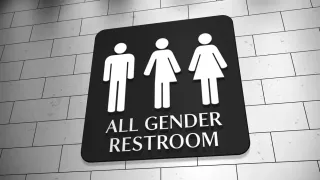
4 hours ago
Alaskan Medical Board Advances Ban on Gender-Affirming Care for Transgender Youth
READ TIME: 4 MIN.
In a decisive move that places Alaska alongside a growing number of states targeting transgender healthcare, the Alaska State Medical Board voted unanimously last week to advance a regulation that would severely restrict gender-affirming medical care for minors. The draft proposal, introduced by Dr. Matt Heilala—a podiatrist based in Anchorage and recent gubernatorial candidate—seeks to reclassify treatments such as puberty blockers, hormone therapies, and gender-affirming surgeries for transgender people under 18 as “unprofessional conduct” for physicians licensed in the state .
Should the rule be finalized, it would enable the board to impose a broad range of penalties, including fines and the suspension or revocation of medical licenses, on healthcare providers who offer gender-affirming care to transgender youth. Notably, the proposed restriction would not apply to equivalent treatments provided to cisgender youth, a distinction that has drawn sharp criticism from civil rights groups and medical experts .
The Alaska board’s action arrives in the context of a rapidly changing national landscape. Since 2021, more than half of U.S. states have enacted or proposed laws banning or restricting gender-affirming care for transgender youth, despite major medical organizations—including the American Academy of Pediatrics and American Medical Association—endorsing these treatments as evidence-based and medically necessary for those experiencing gender dysphoria .
The board’s proposal would make Alaska the first state in the Pacific Northwest to implement an administrative, rather than legislative, ban on gender-affirming care for minors. Currently, there are no state statutes in Alaska that categorically ban such care, although previous legislative efforts have failed .
The draft regulation, which was passed unanimously, is now subject to legal review and a 30-day public comment period before any final vote or implementation. If adopted, the new rule would allow the State Medical Board to investigate and sanction any physician who provides gender-affirming medical or surgical care to minors. It explicitly carves out an exception for nurses and nurse practitioners, who are regulated by a different board .
Dr. Heilala, who initiated the proposal and is currently running for governor, stated that the measure is intended to “protect youth from making irreversible medical choices” before reaching an age of “mature consent.” However, when questioned by media about his or the board’s expertise on transgender medical care, neither Heilala nor the other board members cited direct clinical experience with gender dysphoria or transgender health .
Board executive director Tom Pittman, representing Identity Alaska—a key provider of gender-affirming care—called the move “politically motivated” and warned that it targets an already vulnerable and small population: roughly 500 transgender youth ages 13–18, or about 1.23% of that age group in the state .
The proposal has drawn strong rebukes from both local and national LGBTQ+ organizations, as well as leading medical authorities. Critics argue that the regulation singles out transgender youth for unequal treatment and interferes with the doctor-patient relationship by prohibiting evidence-based care that is widely recognized as life-saving for many transgender people .
According to the ACLU of Alaska, “These types of bans not only violate the rights of transgender youth and their families, they also fly in the face of best medical practice and the recommendations of every major medical association” . The American Academy of Pediatrics, the American Medical Association, and the Endocrine Society have all issued statements condemning similar bans as dangerous and unsupported by scientific evidence .
Dr. David Paulson, a board member and neurosurgeon, defended the board’s intent as an effort to balance compassion with legal and ethical responsibilities. “While compassion requires us to care for youth in distress, we must recognize our duty to protect them from medical and surgical interventions that risk permanently altering their bodies or futures before they're fully capable of mature consent,” Paulson said during the meeting .
If finalized, Alaska’s policy could set a precedent for other states to pursue similar administrative actions, bypassing legislative debate. Legal experts note that such regulations may also face constitutional challenges, particularly on grounds of discrimination and interference with parental rights .
Nationally, more than 100,000 transgender youth now live in states where gender-affirming care is banned or severely restricted. These laws and regulations often prohibit the use of puberty blockers and hormone therapies for transgender youth, while allowing the same medications for other medical indications in cisgender youth, a discrepancy that underscores the discriminatory nature of such policies .
The next step in the regulatory process will be a 30-day public comment period, which will be announced on Alaska’s official online public notice system. LGBTQ+ advocates, medical professionals, and families are expected to mobilize in opposition, emphasizing both the medical consensus in support of gender-affirming care and the personal stories of those affected .
As the debate continues, the stakes remain high for Alaska’s transgender youth and their families, who now face the prospect of losing access to care that leading experts and advocates describe as essential for their health and well-being.






